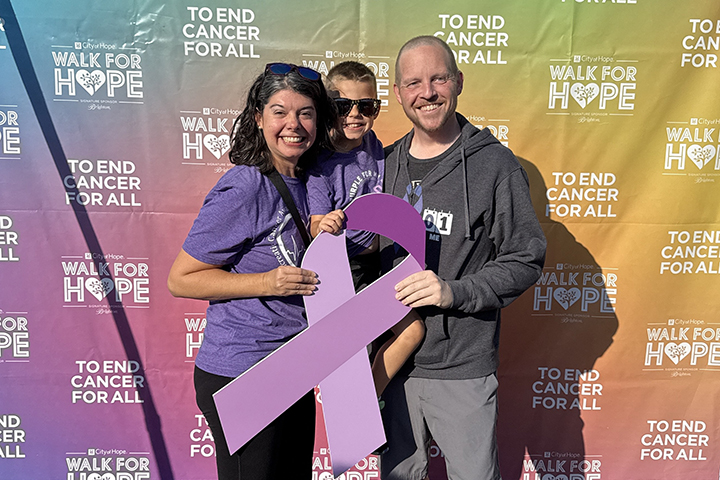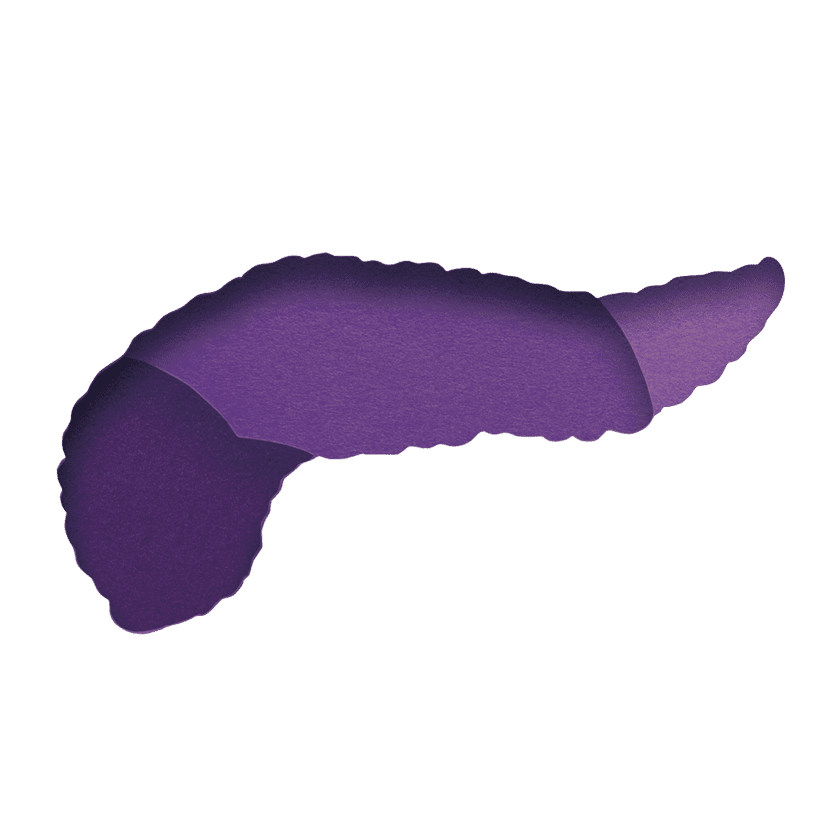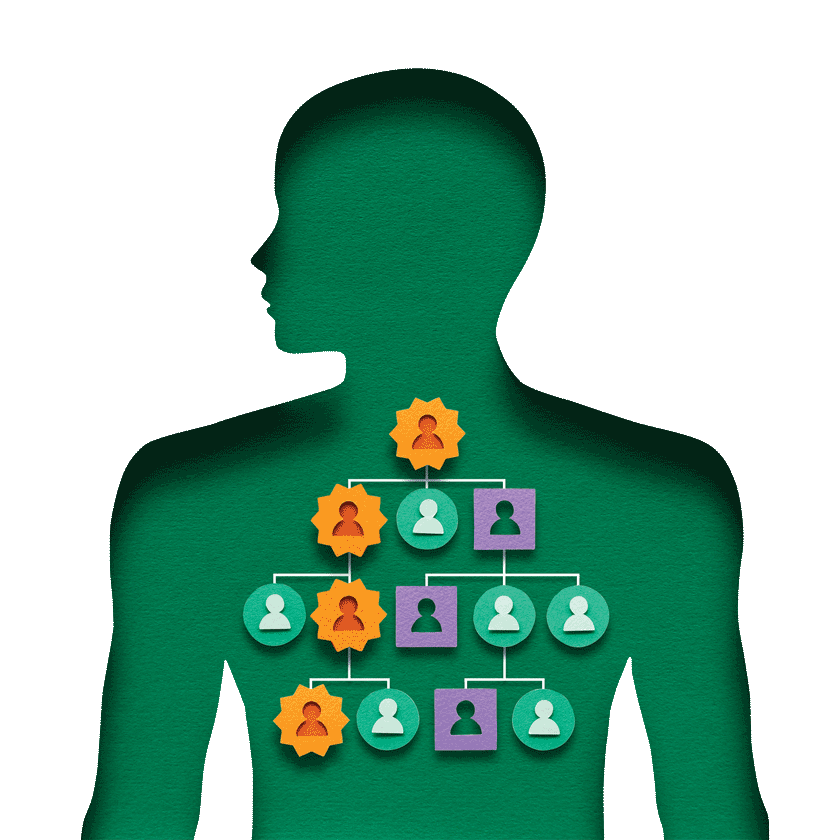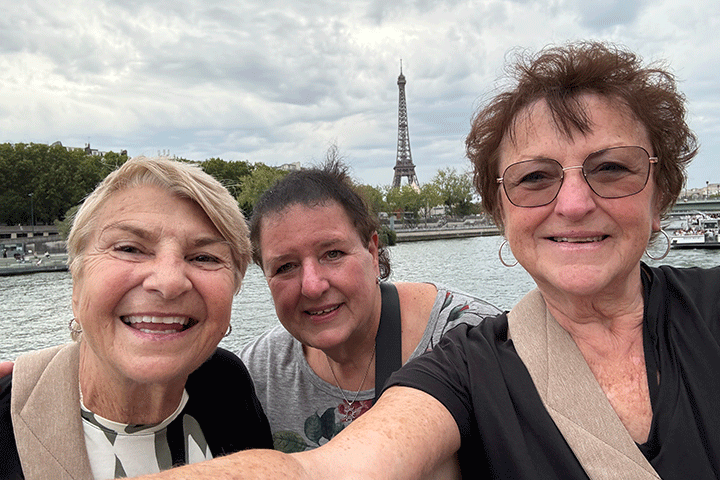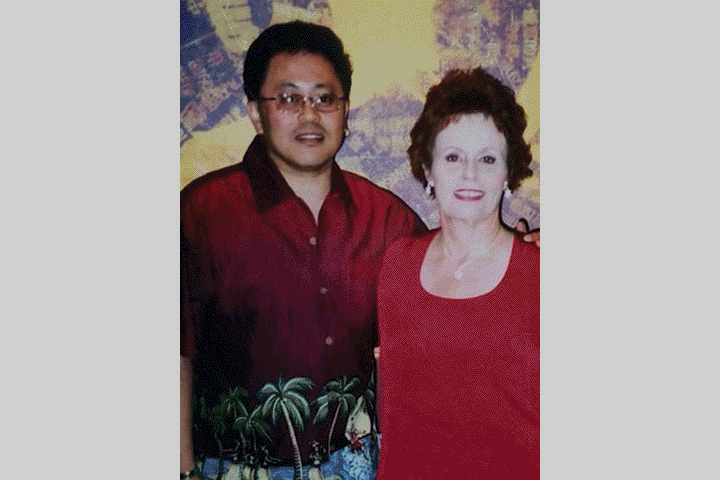Don’t Let Doctors Tell You Nothing’s Wrong
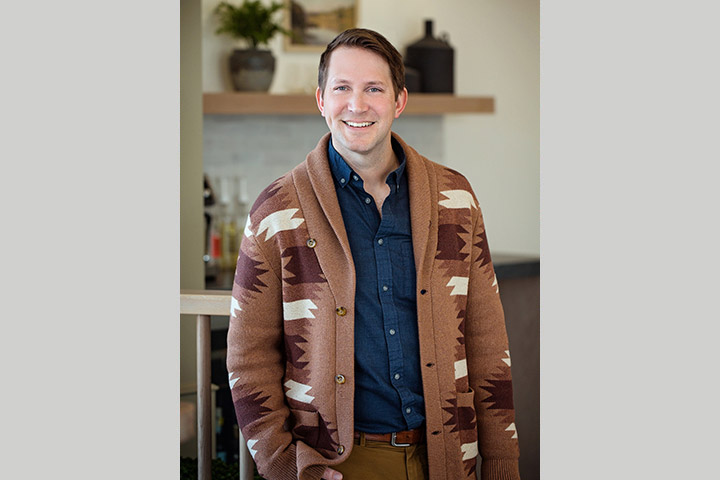
- Abdominal discomfort and jaundice lead to diagnosis
- Positive BRCA2 and KRAS G12V mutations
- Control arm of a clinical trial
- Back on Gemzar and Abraxane
In March 2023 I was vacationing in Fort Collins, Colorado, with my famiIy when I was diagnosed with pancreatic cancer.
I had been having some general abdominal discomfort. As the pain got worse, I went to three different doctors in Des Moines, Iowa, near my home in Carlisle. I underwent x-rays, which found severe constipation and gas buildup. My bloodwork showed increased liver numbers. Even with abnormal bloodwork, I was brushed off by the doctors. One attributed my pain and elevated numbers in my bloodwork to consuming alcohol, which I knew wasn’t the case. The third doctor prescribed medication for GERD (gastroesophageal reflux disease) and told me to “give it the good college try.”
While in Fort Collins in March I became jaundiced. We went to urgent care where, finally, a physician took my symptoms seriously.
Finally a Diagnosis
The doctors in Fort Collins immediately conducted an echocardiogram because I thought I might be having a heart attack. My bloodwork showed significant changes from the earlier tests. An ultrasound showed a mass on my liver, so I was sent to the ER for an emergency CT scan. The scan showed a mass on the head of my pancreas.
I was admitted to the hospital in Fort Collins to have the liver biopsied and to have an ERCP to get a sample of the mass and to place stents in my bile duct to relieve the jaundice, so we could get home to Iowa. On March 15, 2023, I was diagnosed with stage IV pancreatic adenocarcinoma.
While on the way home we had to stop in Omaha, Nebraska, because I developed jaundice again from complications. We got stuck in Omaha when a CT revealed blood clots. The doctors in Omaha also did an ERCP to remove the plastic stents and put a permanent one in. Once again, we were on our way home to Iowa.
Treatment in my Hometown
When we finally made it home, my wife Morgan and I met with Dr. Joshua Lukenbill at Mission Cancer + Blood in Des Moines. He immediately set me up with genetic testing on my tumor. I started treatment with Gemzar and Abraxane (Gem/Abrax). After two infusions we received the results of my genetic testing. I was positive for the BRCA2 and KRAS G12V mutations. Because of the BRCA2 mutation, Dr. Lukenbill immediately switched my regimen to FOLFIRINOX. He hoped that I could participate in a clinical trial after 16 weeks of treatment.
A Clinical Trial
I continued with FOLFIRINOX from April to August 2023 and then enrolled in the Olaparib/Keytruda trial. I was selected for the “control condition” arm, which meant that I was treated only with Olaparib (no Keytruda). While disappointing, the arrangement allowed my family to take a Disney cruise with our two children during this time.
By late October, my CA 19-9, physical symptoms, and scans indicated that the medication was not working. So, in November 2023, we returned to using FOLFIRI (FOLFIRINOX without oxaliplatin).
My liver began to grow uncomfortable during this treatment. I had scans in late December and found out the day after Christmas that FOLFIRI wasn’t strong enough to keep my tumors from growing. I went back to Gem/Abrax and have seen great success with that!
Staying Grounded
This journey has been difficult for all of us. I use guided meditations and visualizations every day. This helps me stay grounded and sets my mind. I am taking Gem/Abrax every other week. We are on cycle two of this frequency after being on the standard frequency for four cycles (months). The great news is that my scans and tumor markers show incredible results.
The side effects have mostly been tolerable. While on FOLFIRINOX, I had neuropathy, cold sensitivity, and neutropenia. While taking Gem/Abrax, my hair fell out and my nails fell off and I had fatigue. Despite all of this, I’ve been able to attend my kids’ events and activities throughout the treatment.
Staying Healthy for Chemo
I have been seeing Dr. Sheba Roy of Associates of Integrative Medicine, a specialist in supportive care in oncology based out of Troy, Michigan. She helps me find supplements to keep my organs healthy so that I can continue with the chemo. This has been a tremendous help to me.
I have had a lot of rough days, but I feel better than I did before the diagnosis. I have gained back all the weight I lost last year. I can eat and tolerate most foods. I have enjoyed coaching my seven-year-old’s basketball team and watching my ten-year-old in all sports. I am the drummer with the Nadas, a regional folk rock/Americana group. Playing drums is a passion, and during treatment I have played when I feel up to it. I’ll continue to play music with my best friends until I physically am unable to!
I’m past the one-year mark with stage IV pancreatic cancer and my tumors have shrunk dramatically. Over the summer I had a liver ablation to try and tackle a stubborn lesion that wasn’t responding to the chemotherapy. I was able to spend time with my family as I recovered.
Advice for Others
I’ve learned a lot over the past year and can pass on a few words of wisdom to others who are diagnosed.
First, take control of your health. Do not let doctors push you off because you’re too young for this disease. I saw three doctors in six weeks—all for the same complaints. It took us traveling to Colorado and me being so sick that I could barely walk to get this sorted out.
Second, find an oncologist that supports your treatment preferences. We saw two oncologists before we even got to Iowa to set up a treatment plan. We told each oncologist we didn’t want a prognosis and didn’t Google anything. The oncologist we see now is perfect for us. He’s willing to try anything and leads us to great treatment. He also encourages us to seek additional treatment at bigger cancer centers. We are connected with a doctor at the Mayo Clinic and will be going to MD Anderson in Houston, Texas, early September of 2024. I hope to enroll in another clinical trial for my KRAS mutation there.
Third, seek mental health help for you and the people taking care of you. Cancer is hard. Being a patient is hard. Caregiving is hard. But we can get through it together.
Shortly after sharing his story, Brandon passed away. He participated in clinical trials and continued to work and play music as long as possible. He will be missed by his family and friends everywhere and we offer our deepest condolences.


